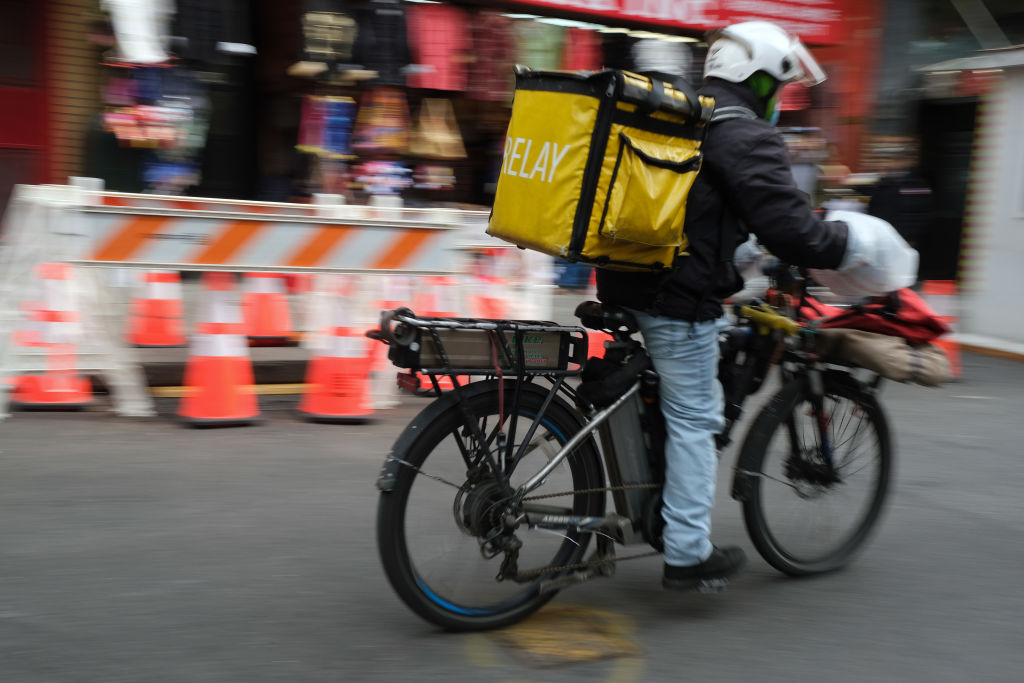New York City considers banning sale of second-hand and uncertified lithium-ion batteries to curb fires
City Council held hearing to address the deadly rise in e-bike and e-scooter related fires


The latest race content, interviews, features, reviews and expert buying guides, direct to your inbox!
You are now subscribed
Your newsletter sign-up was successful
The New York City Council is reviewing a package of bills, sponsored by Councilwoman Gale A. Brewer, addressing the rise in city fires caused by faulty or malfunctioning lithium-ion batteries and chargers used in e-bikes, e-scooters and other electronic mobility devices.
The bills call for a range of reforms including informational campaigns and banning the sale of both second-use and uncertified batteries.
After several deferrals, the Committee on Fire and Emergency Management convened following a Manhattan apartment building fire that injured at least 38 people earlier this month. This was the latest of nearly 200 lithium-ion battery-related fires this year, which have resulted in 140 injured people and six fatalities. The number of lithium-ion battery-related fires have doubled from last year and quadrupled from 2020.
With micro-mobility transportation devices such as e-bikes, e-scooters and hoverboards growing in popularity —for both recreational and professional use— fires caused by large lithium-ion batteries are becoming a serious problem in cities the world over.
Staying clear of any anti- e-bike, e-scooter or e-mobility device rhetoric, the proposed reforms strictly center around the lithium-ion batteries and chargers.
The problem with the large lithium-ion batteries used in micro mobility devices lies in the abundance of cheap, poorly made products from disreputable sources that are sold via the internet, are often untested and do not adhere to any safety standards.
In summary, the five bills proposed would:
The latest race content, interviews, features, reviews and expert buying guides, direct to your inbox!
- Require the Fire Department to develop a multi-media informational campaign to educate the public on the fire risks posed by powered mobility devices and safety measures that mitigate such risks.
- Prohibit the sale of batteries for mobility devices such as electric bicycles or scooters unless such batteries have been listed and labeled by a nationally recognized testing laboratory or other approved organization, such as the Underwriters Laboratories Mark (UL mark).
- Prohibit the sale of second-use lithium-ion batteries that have been assembled or reconditioned using cells removed from used batteries. It would also prohibit the assembly of such batteries.
- Require the FDNY to report extensively on safety measures to mitigate fire risk associated with powered mobility devices.
- Require that the Department of Consumer and Worker Protection, in consultation with the Fire Department, establish materials that provide guidance on safe use and storage of powered mobility devices for couriers and food delivery workers.
At the hearing, the FDNY spoke in favor of the reforms dealing with the dissemination of basic safety information as well as the banning the sale of second-use and unapproved batteries.
Personal and recreational use aside, New York City is home to some 65,000 delivery workers and couriers who increasingly rely on e-bikes and other micro-mobility devices for their livelihood.
“[Mobility devices] have become ubiquitous among delivery workers, fueling around the clock convenience the New Yorkers have come to rely upon. Our challenge is to strike the appropriate balance of ensuring public safety while not unnecessarily disrupting the livelihood and enjoyment of users,” stated Thomas Currao, FDNY’s Acting Chief of Fire Prevention, at the hearing.
Outside City Hall, a coalition of NYC residents, delivery workers and fire safety advocates gathered to hold a press conference and call for more than what the proposed reforms offer.
"We came to City Hall today because we need change; there have been too many fires this year from unregulated batteries. We need more than just an informational campaign. We need real regulation. We want to make sure the batteries are not being charged in buildings, that batteries and chargers are UL-certified, and for the city to explore integrating a battery swap network," said Baruch Herzfeld in a statement sent to Cycling Weekly.
Herzfeld is the cofounder of Safer Charging, a group that’s trying to increase the adoption of light electric vehicles through a standardized, swappable battery network.
For safety reasons, Safer Charging wants the city to look at either a battery-swapping system or building outdoor charging stations, enabling delivery workers and residents to charge up their devices outside their residences.
"The city needs to do more to make us feel safer," stated Delores Sampson, a senior delivery driver who, concerned about safely charging her e-bike, hangs an extension cable down from her fourth floor window in order to charge her device outside.
“I'm scared to charge my battery in my building. I just feel that the city should do more for workers like me."
When the Council might reconvene to vote on these bills has not yet been revealed.

Cycling Weekly's North American Editor, Anne-Marije Rook is old school. She holds a degree in journalism and started out as a newspaper reporter — in print! She can even be seen bringing a pen and notepad to the press conference.
Originally from the Netherlands, she grew up a bike commuter and didn't find bike racing until her early twenties when living in Seattle, Washington. Strengthened by the many miles spent darting around Seattle's hilly streets on a steel single speed, Rook's progression in the sport was a quick one. As she competed at the elite level, her journalism career followed, and soon, she became a full-time cycling journalist. She's now been a journalist for two decades, including 12 years in cycling.